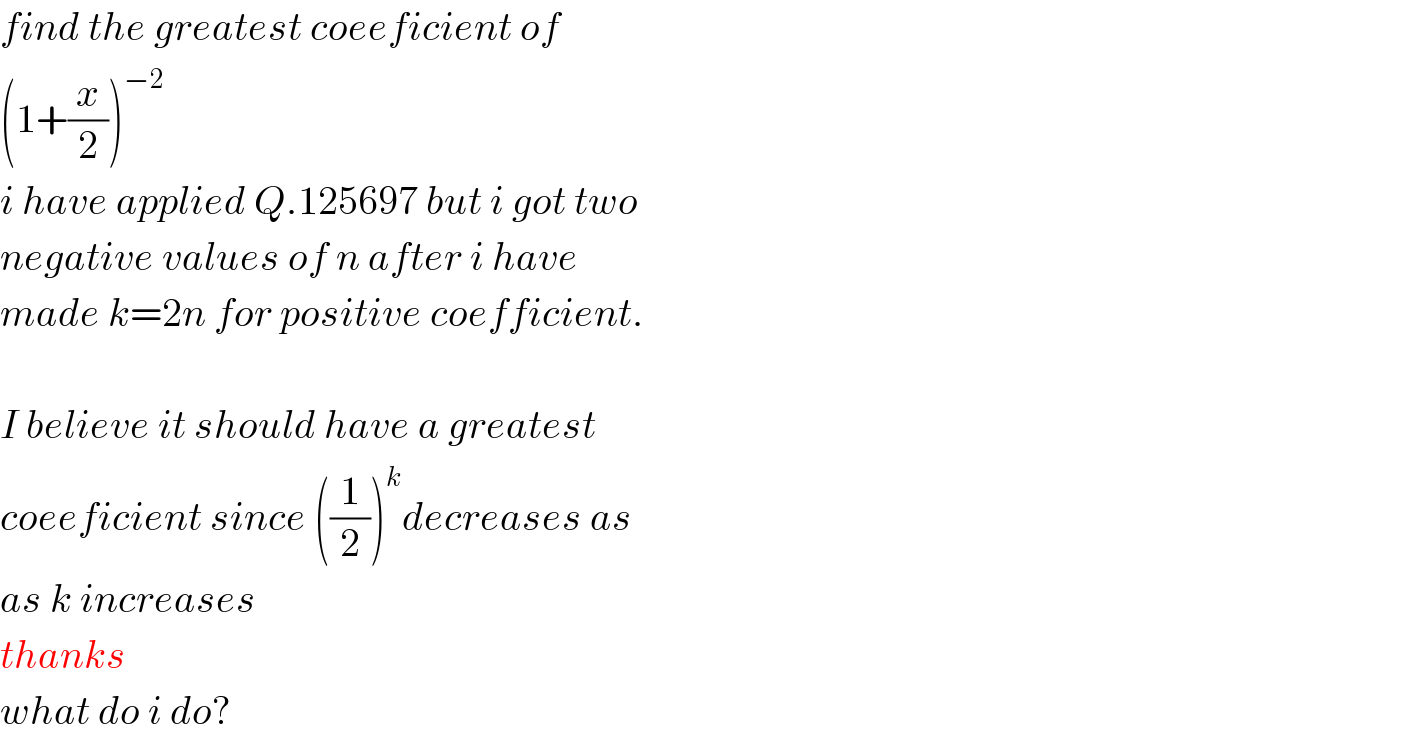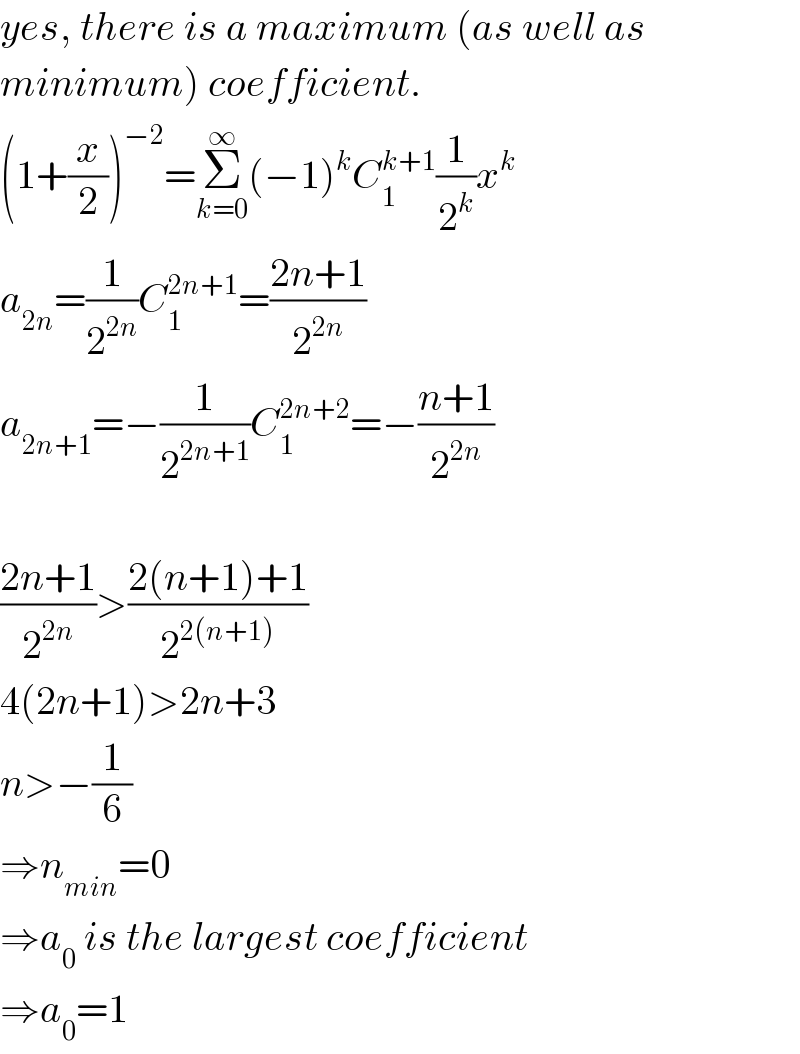
Question and Answers Forum
Question Number 125881 by aurpeyz last updated on 14/Dec/20

Commented by mr W last updated on 14/Dec/20

Commented by aurpeyz last updated on 15/Dec/20

| ||
Question and Answers Forum | ||
Question Number 125881 by aurpeyz last updated on 14/Dec/20 | ||
 | ||
Commented by mr W last updated on 14/Dec/20 | ||
 | ||
Commented by aurpeyz last updated on 15/Dec/20 | ||
 | ||